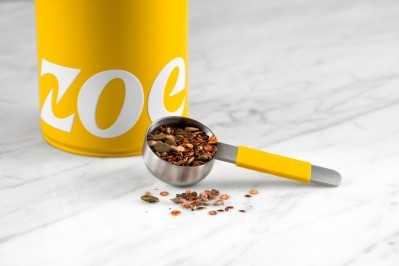Zoe gets $15 million to expand into U.S. market

This brings the company to $118 million in total funding.
“The investment will be used to support our expansion plans, to help us to build the business in the U.S. market, prove that it’s relevant and deliver results,” Zoe CEO Jonathan Wolf told NutraIngredients-USA. “It will also help us continue to deliver long-term engagement from our community of over 100,000 Zoe members worldwide. We want to engage with the U.S.’s strongest voices in improving health and build the infrastructure to support the thousands of U.S. members that will join us.”
Much like the UK, the U.S. is in the middle of a health crisis as the country has the highest rate of individuals living with multiple chronic health conditions and one in five American children live with obesity, Wolf added.
“This is, in part, down to the food landscape, as ultra-processed foods now account for 60% of calories in the American diet, and I think that Zoe has the potential to improve the health of millions of Americans through our education and guidance,” he said.
The testing and the science
The company sends consumers at-home testing kits to collect blood or feces. These tests measure fat, blood sugar and determine the health of a customer’s gut microbiome. After sharing these results, food choices are given a score from 0 to 100 to help people make healthier eating choices. Zoe also teaches clients how to combine foods most suited to the individual and has ongoing gut microbiome testing to track headway.
Later this year, the company also plans to launch its Daily30+ whole food supplement into the U.S. market. Wolf said that instead of an ultra-processed pill or powder, the ingredients for Daily30+ are delivered in a daily scoop and are minimally processed to preserve the food matrix. These ingredients include fruits and vegetables to protect against cellular damage, mushrooms for their antioxidant properties, herbs and spices to reduce inflammation and diversify gut flora, and nine types of nuts and seeds, quinoa and red lentils.
“This adds texture and flavor to every dish, as it was designed to complement food rather than replace it,” Wolf said.
The company prides itself not only on its products but also on the 60-plus scientific studies it has conducted in the last seven years that support the claims of the Zoe regimen.
“We run the world’s largest in-depth nutrition study, and we’ve turned this research into a personalized nutrition program, the Zoe membership, which gives members unique insights into how their body responds to food,” Wolf said. “Our research aims to understand how, why and what happens to our health when our diets change; and how our lifestyle impacts our metabolism. Understanding how our sleep impacts the way our body responds to food as well as understanding the way in which being tired impacts our food choices—we want to understand the intricacies of how our diet impacts our lives and vice versa.”
In May, the company released results from a randomized control trial to test the personalized dietary advice provided to the Zoe membership, called Method. The results, published in Nature Medicine, found that Zoe was more effective in improving health than standardized U.S. government dietary advice. However, reporting from NutraIngredients suggested the research caused performance bias in participants.
Remaining competitive?
Despite the science and new capital, Zoe enters a competitive U.S. market that has seen the rise and fall of personalized nutrition companies. This was the case for Care/of, which received $225 million from Bayer four years ago only to close operations this summer.
“I think there’s less competition in the UK,” said Noah Voreades, founder and managing director of GenBiome consulting, which specializes in areas of personalized nutrition. “In America there's a ton of competition for ways to learn about your body, learn about your body's response to food. We have personalization options or coaching options related to weight loss or improving your health that you probably just don't have in the UK.”
One advantage Zoe may have over competitors is its algorithm, especially when reviewing the landscape of personalized wellness companies that have entered the market since 2017.
“Zoe is one of the few that have invested in large human studies prior to launching its platform versus relying on paying members to validate assumption-based algorithms, which is the more common approach,” Voreades said.
He added that other personalized nutrition companies currently or formerly in market take the approach of reviewing the peer-reviewed literature, consulting with respective scientific experts, or a combination, to build their algorithm.
Building an algorithm like that of Zoe, 23andMe, DayTwo, InsideTracker and Digbi Health, can be expensive and time consuming.
Despite receiving the recent capital infusion, Zoe may face other challenges.
“From a business model perspective, Zoe desperately needed this cash to keep up with a very different competitive landscape from when they were founded,” Voreades said. “For perspective, 23andMe has had more than 15 million customers worldwide take one of its tests and raised approximately $1 billion to achieve this level of customer volume, built out an incredible app, conducted human clinicals and received FDA approval for its tests. But the point I want to make is to get millions of customers, they had to raise a lot of cash.”
23andMe’s SPAC IPO and subsequent public market performance demonstrates the personalized wellness category is difficult to scale and make significant profitable business, Voreades said. According to its fourth quarter and full year fiscal 2024 financial results, 23andMe is still not profitable.
Looking ahead to Zoe's next phase, Wolf said he continues to be mission driven.
“As for the next few years, our core product and membership will always remain our number one priority in our mission to transform people’s health not just for the next few weeks or months, but for life,” he said. “Continuing to evolve the product to help our members continue to thrive is our main goal.”








